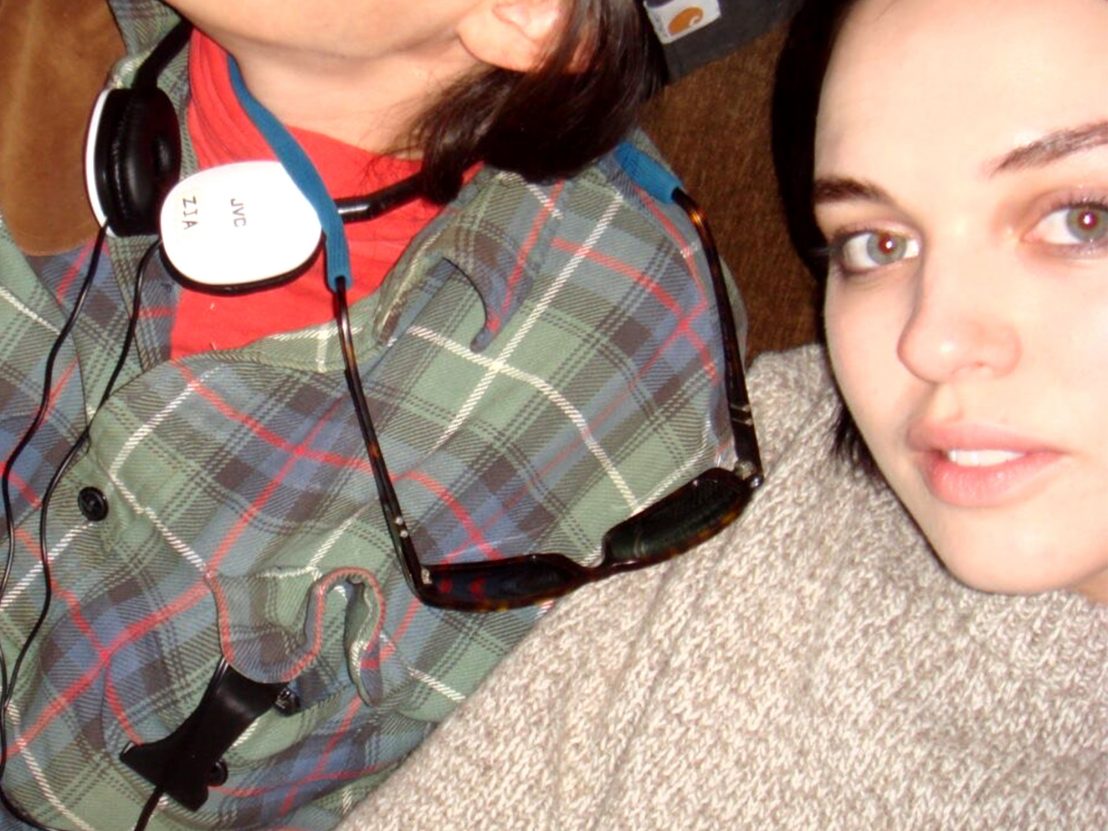
In her intriguing debut feature, director Zia Anger attempts to exorcise the ghost of a long-abandoned filmmaking venture.
“This probably shouldn’t be a film,” notes the opening of Zia Anger’s debut feature, decisively titled My First Film. The courage to begin with such abnegation speaks volumes about the ambivalent relationship between creator and creation, where vulnerability is at stake. At the same time, the assurance which causes those words to appear on a desktop screen teases a contradiction: My First Film is a meta-history of first times, but it is not really a debut.
It has been 15 years since the director shot a feature about a young woman searching for her mother – Always All Ways, Anne Marie – which IMDb classifies as “abandoned”. Anger can be considered a veteran in debut filmmaking after years of touring with a desktop-based live performance called ‘My First Film’, the logical conclusion of which now exists as a 100-minute autofiction feature with the same name.
More than a simple repackaging of the narrative, ideas, and raw reflections which fuelled her desktop-based live performance of the same name, My First Film occupies several planes of existence. First, as a legacy piece, then, as a venture in fictional meta-fiction, and thirdly, as a joyous reclamation of all the lost ‘firsts’: films; abortions; rejections.
The act of turning a (very personal) performance piece into a feature inevitably questions the translatability of art across media, but the film is clearly the project’s final incarnation: the fullest and the most accessible of all.
In 2018, Anger started her desktop performance in front of audiences and during the early days of lockdown, she put up a limited number of live-stream events that utilised the format even more: connecting the isolated. My First Film, however, trades desktop for the cinematic conventions of plot, performance and camerawork, to present a non-linear emotional journey.
Transformation may be the defining feature of Anger’s approach to storytelling in the way she invites it, both as a performer and as director. She is generous and wise to hand over the role of Vita (Anger’s alter-ego of fifteen years prior) to an actress as vivid as Odessa Young (Shirley) who shines even in her melancholy.
Vita is a first-time filmmaker with a crew of friends and a crowdfunding campaign; behind the scenes, she also has an Adderall addiction and an unwanted pregnancy to deal with. Laughter, tears, or suffocated dreams weigh on Vita, but it is no coincidence that her name is Latin for ‘life’, as My First Film, only in its present shape and form, can realise the promise of cathartic new beginnings that haunted its past versions.
Context and legacy aside, My First Film is a fascinating exploration of cinematic language and the myriad of ways the camera can literally inhabit a narrative. Ashley Connor (who lensed Always All Ways, Anne Marie and recently, Polite Society) gets creative with camera positions, movements, and overall dynamism to slip in between Vita’s voiceover narration and the plot itself, effectively carving a space for the unshareable to dwell in. Loss may fit images better than it yields itself to words, yet Connor’s visuals amplified by Perfume Genius’ ethereal score never try to fill in the gaps left by Anger’s previous projects.
Images acquire a life of their own: chaotic handheld scenes, stock clips, old and recreated footage, the director’s own Instagram stories, Maya Deren’s Meshes of the Afternoon coexist in a hybrid meditation of loss and severed beginnings. It’s also true that filmmaking itself is a process of healing – and the glorious documentary-style ending testifies to that – it is at once messy, troubled and somewhat sacred.
Published 10 Apr 2024